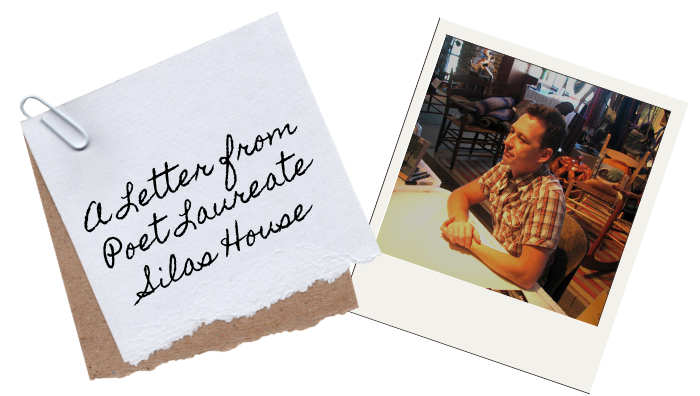Listen Now: An Oral History Project

Listen Now: An Oral History Project
With Kentucky Poet Laureate Silas House
Dear Teacher,
I was always with older folks when I was very young. They called me “Little Man” and told me I was “an old soul.” I worked in the garden with my grandparents, learned how to count money with Old Man Hoskins at the local store, and eavesdropped on the tales of my ancient neighbors. But it was the stories of my fierce aunt, Sis, that were my favorite.
Unfortunately, it seems there are fewer opportunities for different generations to interact now. The United States census shows that Appalachia, where I live, has some of the lowest levels of age segregation in the nation. Yet even here I notice a shift away from the intergenerational activity I enjoyed as a child in the 1980s.
What do we lose as we drift further away from our elders?
I spent a great deal of my time with Aunt Sis, who seems to have always been old. She knew how to plant and how to build a fire. She had once been known as the wildest and most beautiful woman in Leslie County, Ky. She was blunt and hard to please. Sis loved to wear red dresses and red lipstick. Her coal-black hair was always styled, even after long hours in the yarn factory that left her hands bloody with thin cuts.
More than anything else, my aunt told me stories. She knew all the key elements of storytelling: love, mystery, trouble. In her tales there was comedy, tragedy, a man who got his comeuppance, a defiant woman who would not be defeated, a community that ostracized the heroine. She recalled rationing and claimed to remember listening to F.D.R., my childhood hero, on the radio. She brought my long-lost great-grandparents to life.
This is the main thing we lose when we don’t talk to our elders: the histories. How many teenagers, for example, know the intimate details of Taylor Swift’s love life but don’t now the love stories of their own parents? The joys and sorrows of the older generations serve as examples for us to learn from, to emulate or, perhaps even more useful, to avoid. As age segregation becomes more ingrained in our culture, what cycles will be repeated, what misconceptions will flourish?
Sis was not without fault, of course. She could be bigoted in a casual way that many of her generation shared. I had learned that slurs like the ones she sometimes used were not appropriate, and taught her as much. Intergenerational education.
Any of us move away from our hometowns and extended family. As I got older, I moved, too. We also take less part in the activities that once brought different generations together: things like church, community-focused entertainment and communal work. In my hometown, entire families used to attend an annual sorghum cook-off. We pulled foam off the bubbling syrup, sat around an outdoor fire and exchanged stories. First the teenagers stopped coming, then the middle-aged folks. For a while the older generation soldiered on, but that particular tradition stopped a few years ago now.
The generational divide is nothing new, of course, and it may only continue to grow. According to the most recent census, the elderly population will more than double between now and 2050. Before then we’ll have to decide if it’s better to ignore a huge chunk of our population, or if we will embrace everything we can give to one another.
My children, both in their twenties now, spent a lot of time with Sis in her very old age. She may have been on oxygen and in a wheelchair, but the stories she shared taught them how to be as strong, defiant and determined as she had always been. Sis taught them that people of all ages have value, and revealed to them that multigenerational mixing can lead to true laughter, knowledge and mutual respect.
This oral history project, Listen Now, is part of my platform as the poet laureate of Kentucky for 2023-2025 and is meant to create easy opportunities for young people to mix with their elders. I fear that current young people are more segregated from their elders than ever before and I want to encourage them to listen to them, to talk to them, to learn from them. Encouraging them to sit down with their elders to take an oral history is a perfect way to get them together and to let relationships develop organically. What follows are guidelines to help them in this effort.
Thank you for your willingness to participate in this important project.
All the best,

P.S. If you do the Listen Now Oral History Project please let me know by writing to me at [email protected]
